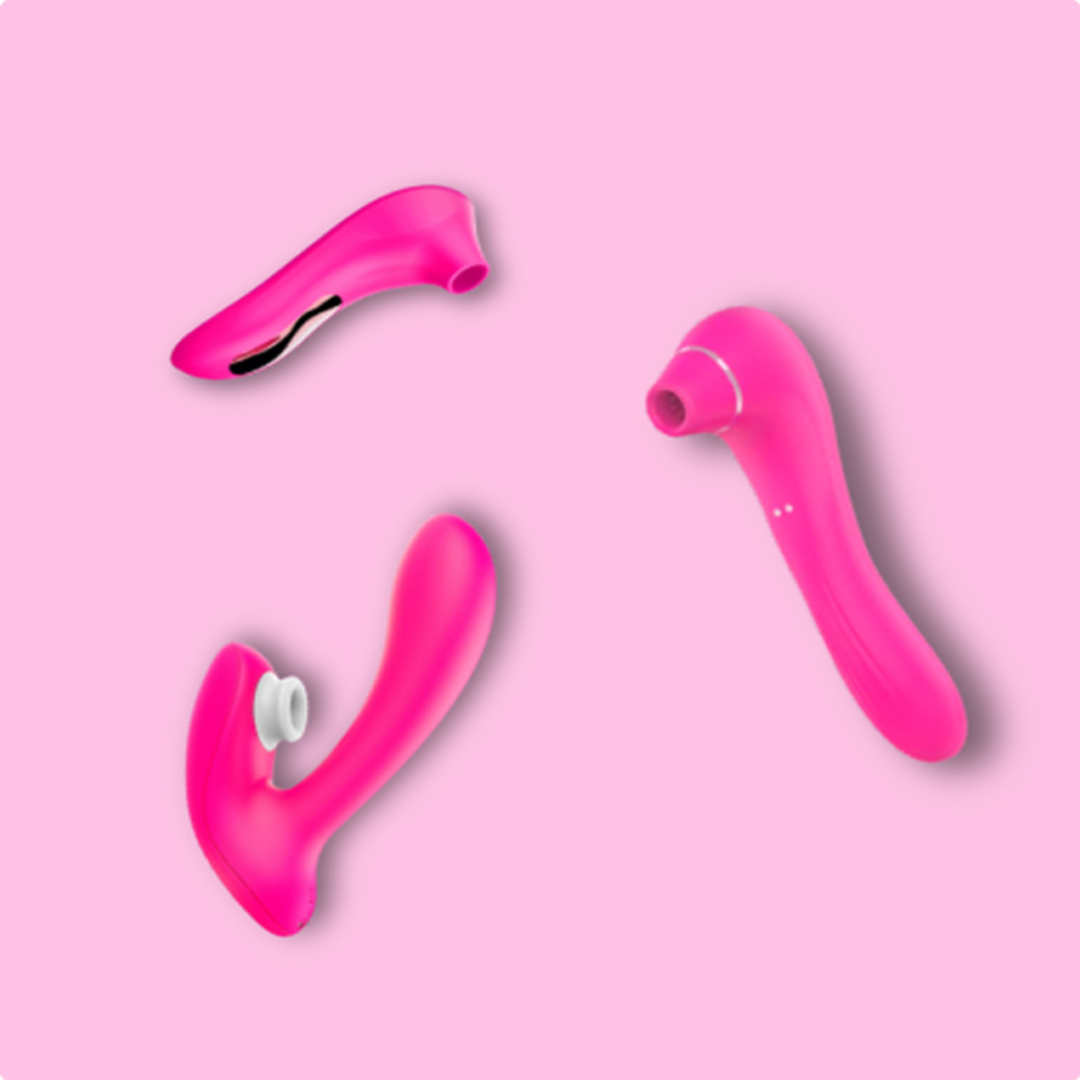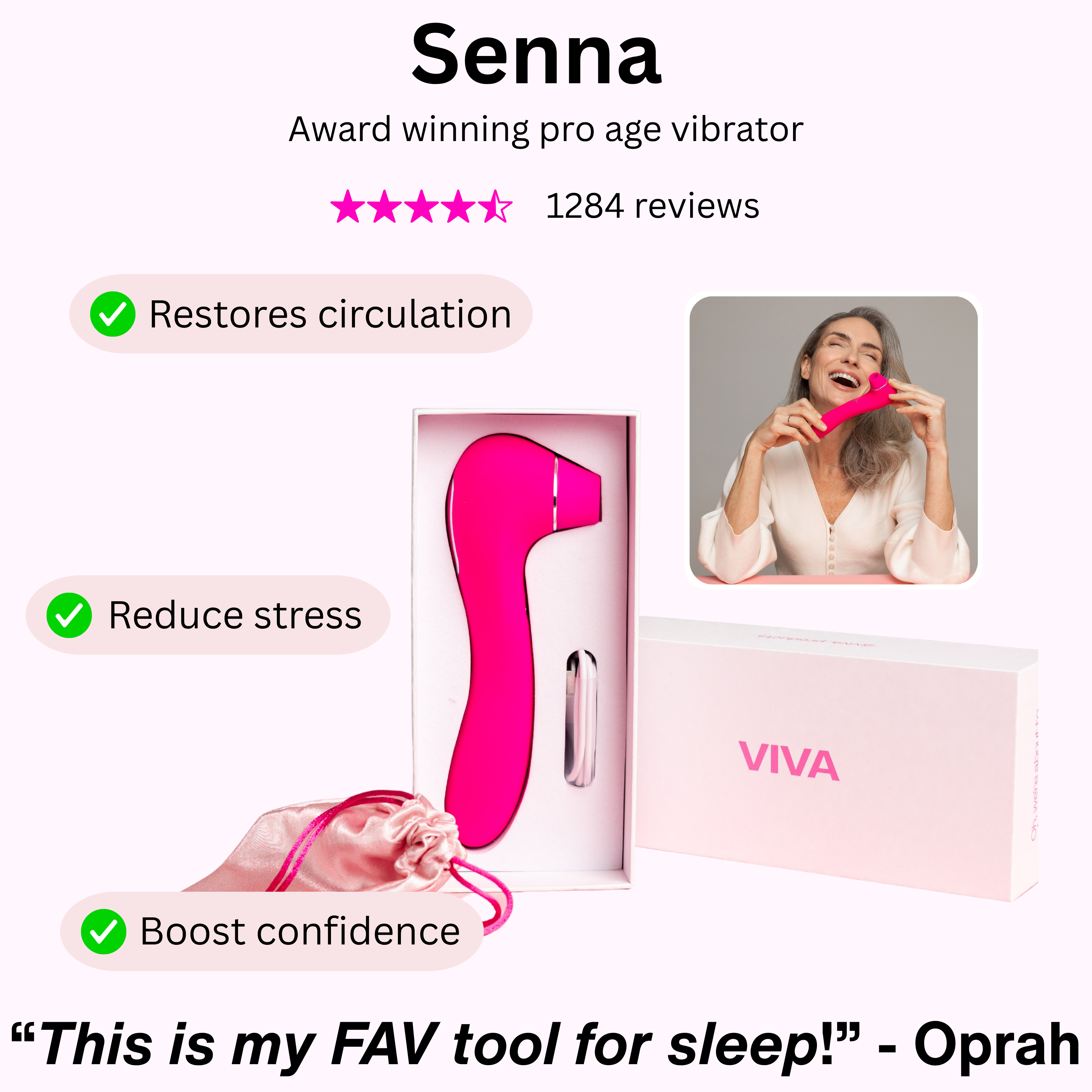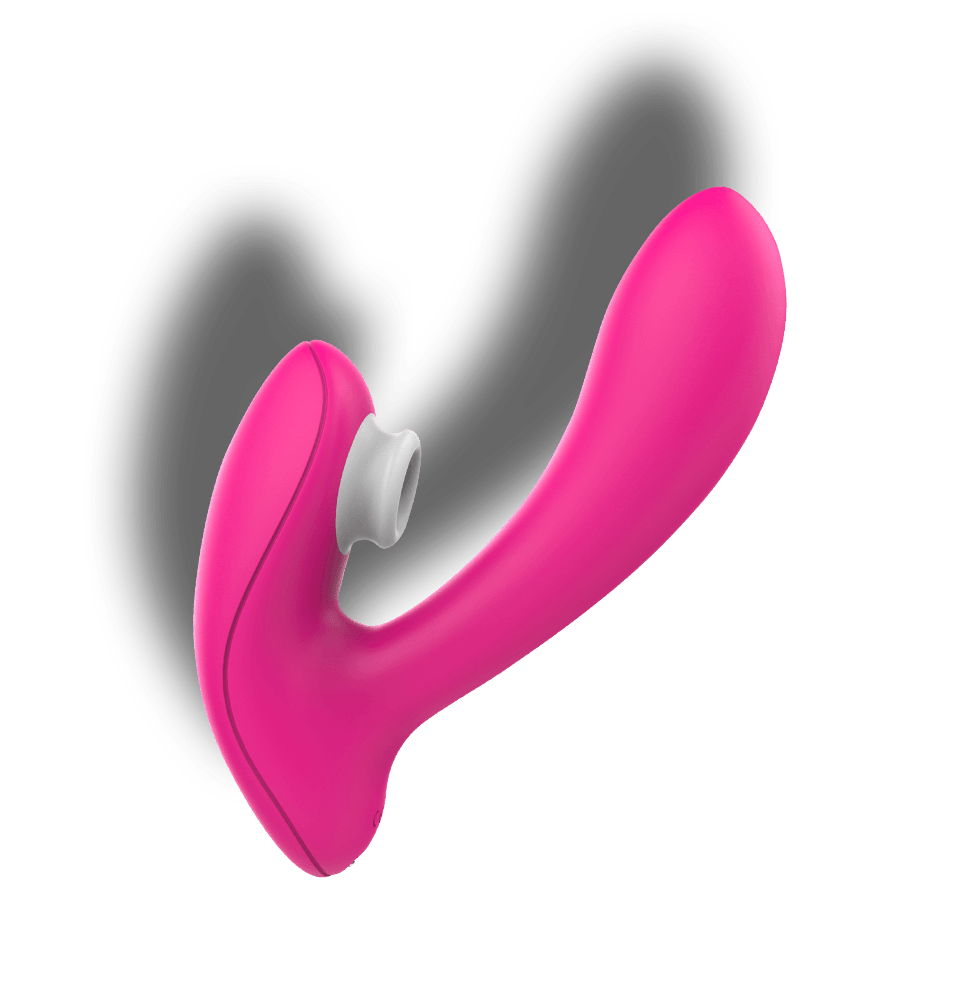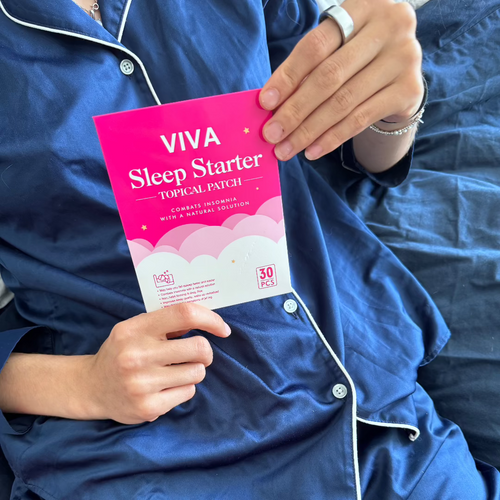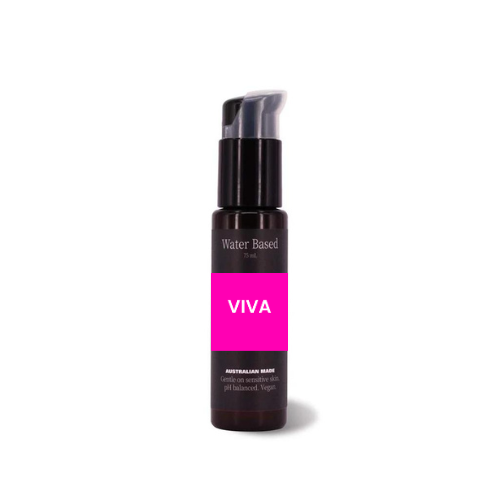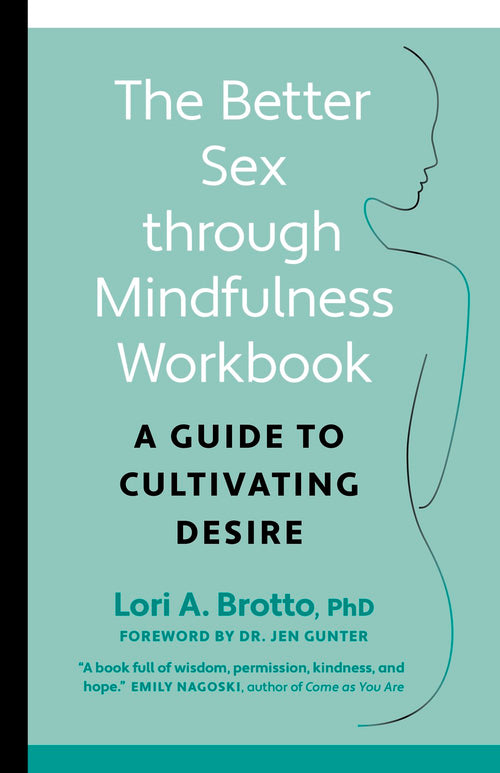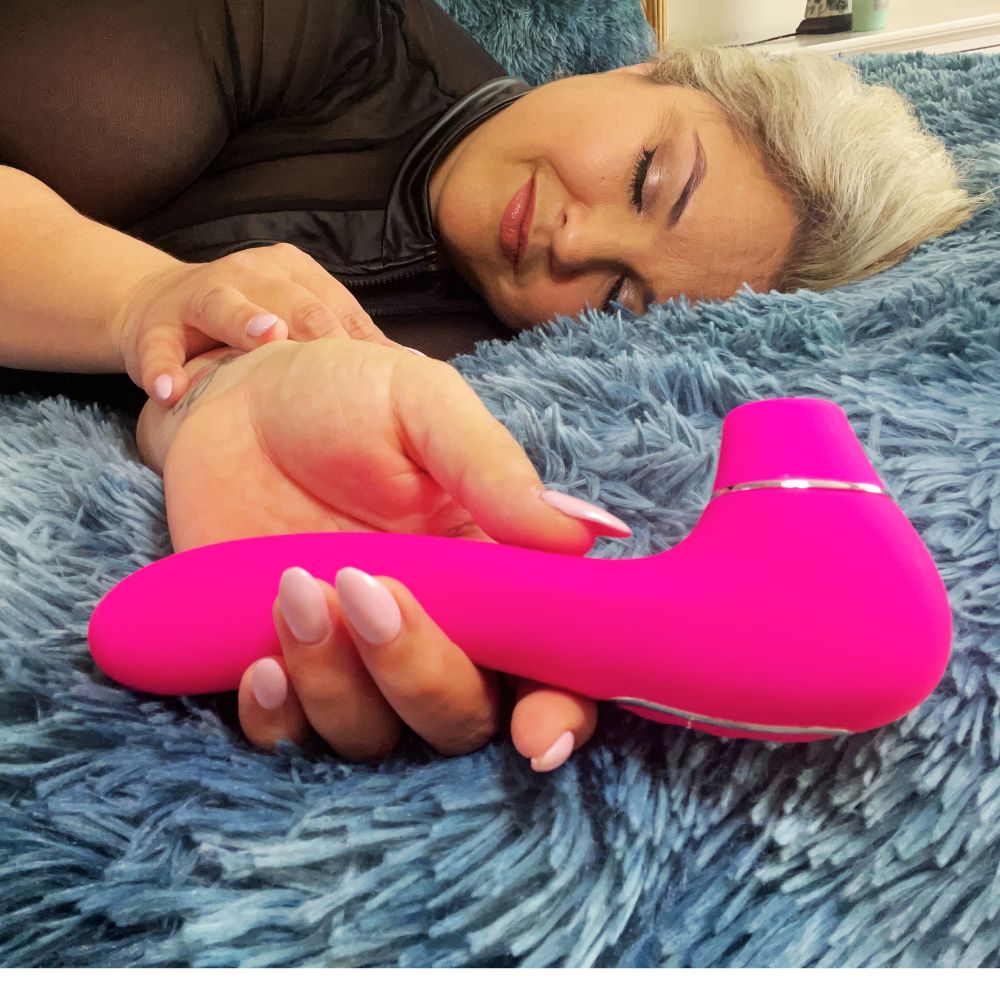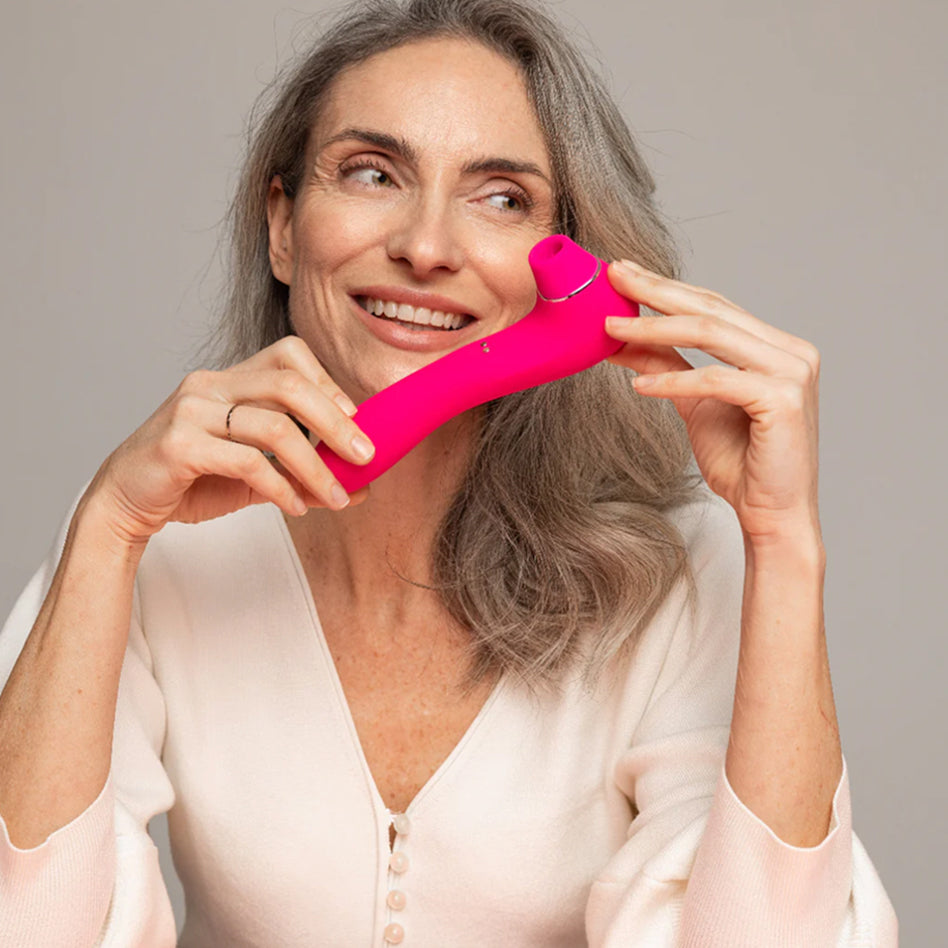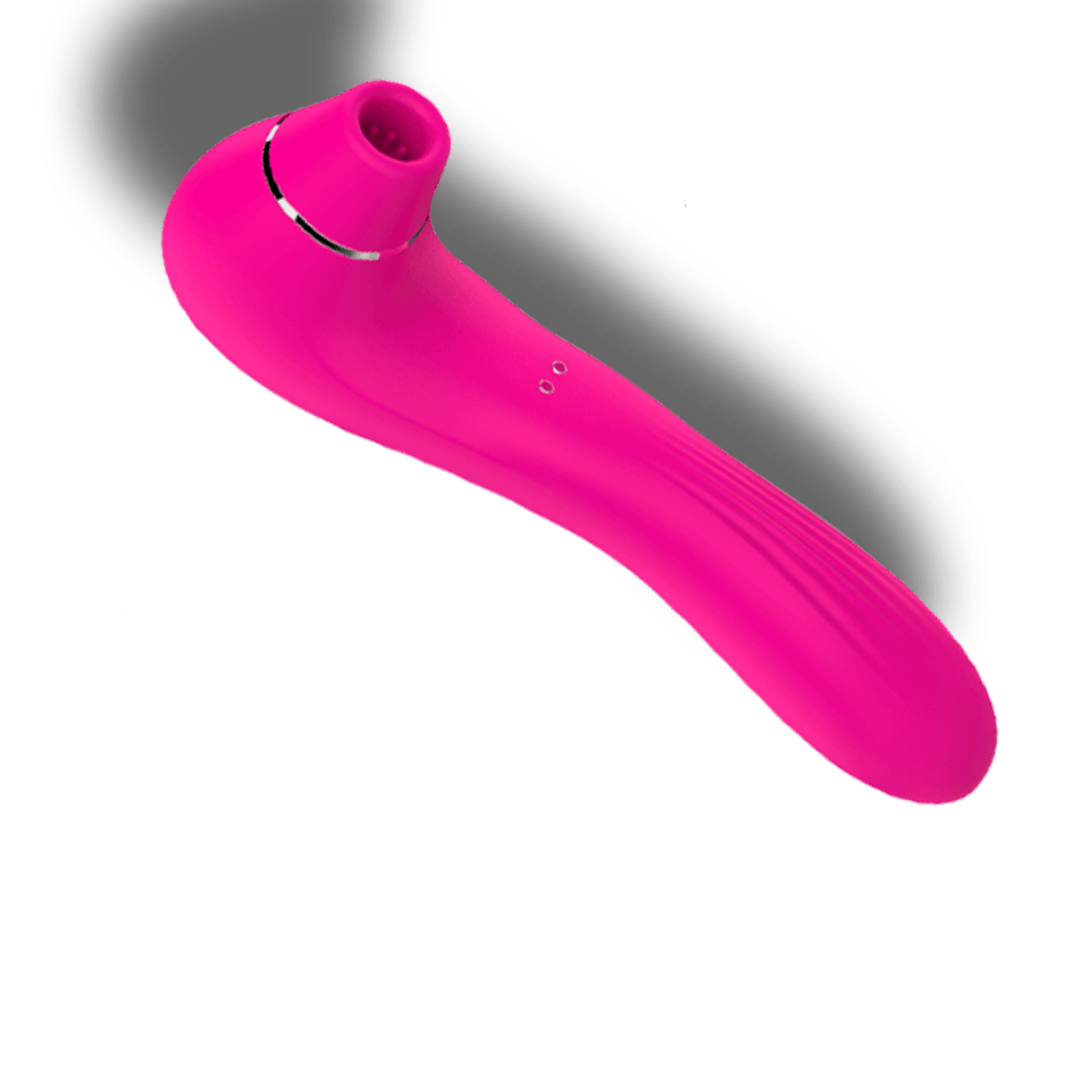Key Takeaways
What You Need to Know About Vaginal Dryness After 50
- Vaginal dryness affects over 50% of post-menopausal women, making it an extremely common condition
- It's primarily caused by declining estrogen levels during menopause, which leads to thinner vaginal tissues
- Common symptoms include painful intercourse, irritation, burning sensations, and increased risk of UTIs
- Water-based lubricants provide immediate relief without irritating sensitive tissues
- Regular sexual activity increases blood flow and helps maintain vaginal elasticity
- Specialized intimate products designed for mature women can significantly improve comfort and quality of life
- Hydration, nutrition, and pelvic floor exercises contribute to overall vaginal health
- Medical interventions like vaginal estrogen therapy are available for severe cases
Understanding Vaginal Dryness After 50
Vaginal dryness is an extremely common yet often underdiscussed symptom that affects the majority of women as they age, particularly after 50. This condition, medically known as vaginal atrophy or atrophic vaginitis, occurs primarily due to the natural decline in estrogen levels during menopause. The reduction in estrogen significantly impacts the vaginal environment, leading to physiological changes that many women find challenging to discuss openly with healthcare providers or partners.As estrogen decreases, vaginal tissues become thinner, less elastic, and produce less natural lubrication. The vaginal lining, which normally consists of multiple cell layers that provide elasticity and moisture, begins to thin out. The vaginal pH becomes less acidic, which can disrupt the balance of beneficial bacteria and increase susceptibility to infections. These changes aren't just a minor inconvenience – they can significantly impact quality of life, intimate relationships, and overall comfort throughout daily activities.
According to medical research, vaginal dryness affects approximately 17% of women aged 18-50, but this number jumps dramatically to over 50% for post-menopausal women. The prevalence increases throughout the menopausal transition, from about 4% in early stages to 47% post-menopause. Studies published in the Journal of Menopausal Medicine indicate that despite its high prevalence, only about 25% of affected women seek medical treatment, highlighting how underdiagnosed and undertreated this condition remains in clinical practice.
While declining estrogen is the primary cause, other factors can contribute to vaginal dryness, including:
- Certain medications (antihistamines, antidepressants, some blood pressure medications)
- Cancer treatments, particularly chemotherapy and radiation therapy to the pelvic area
- Sjögren's syndrome, an autoimmune disorder affecting moisture-producing glands
- Diabetes and other endocrine disorders that affect hormonal balance
- Childbirth and breastfeeding, which cause temporary hormonal fluctuations
- Immune system disorders that affect mucous membrane production
- Excessive douching or use of scented feminine hygiene products
Common Symptoms and Impact on Quality of Life
Vaginal dryness manifests through several uncomfortable and sometimes painful symptoms that can significantly affect daily life and intimate relationships. These symptoms often develop gradually over time, sometimes making it difficult for women to pinpoint exactly when the changes began or to recognize them as part of a treatable medical condition rather than simply "getting older."Primary Symptoms Include:
- Painful intercourse (dyspareunia), which can range from mild discomfort to severe pain that makes sexual activity impossible
- Burning or itching sensation in the vaginal area, which may be constant or intermittent
- Thinning and fragility of vaginal tissues, leading to easy irritation from clothing or physical activity
- Light bleeding during or after intercourse due to micro-tears in the vaginal lining
- Increased susceptibility to vaginal infections, including bacterial vaginosis and yeast infections
- Urinary symptoms (urgency, frequency, painful urination, recurrent UTIs)
- Decreased vaginal discharge and natural lubrication
- Shortening and narrowing of the vaginal canal, which can make pelvic exams and intercourse uncomfortable
- Decreased sexual desire and satisfaction, with studies showing up to 80% of women with vaginal dryness report reduced libido
- Relationship strain due to painful intimacy, with partners sometimes misinterpreting avoidance of sex as rejection
- Reduced self-confidence and body image issues, as women may feel they're "aging prematurely"
- Sleep disturbances from discomfort, which can contribute to fatigue and mood disorders
- Anxiety about potential pain during intimate moments, creating a cycle of tension that can worsen symptoms
- Social isolation or withdrawal from activities due to constant discomfort
- Emotional distress, including feelings of loss related to changes in sexual function
Effective Lubricants for Immediate Relief
One of the most immediate and accessible solutions for vaginal dryness is the use of personal lubricants. These products provide instant moisture and can significantly reduce discomfort during intimate activities. Unlike longer-term treatments that address underlying causes, lubricants offer on-demand relief that can make a substantial difference in comfort and pleasure during intimate moments.Water-Based Lubricants: The Ideal Choice
Water-based lubricants are generally recommended as the first choice for women experiencing vaginal dryness, especially those over 50. They're gentle, compatible with condoms and silicone toys, and closely mimic natural vaginal lubrication. Gynecologists typically recommend water-based formulations because they're less likely to cause irritation to already sensitive vaginal tissues and don't leave behind residue that can disrupt vaginal pH balance.Our Water Based Lube ($12.00) is specifically formulated for mature women, providing:
- Enhanced pleasure during intimate moments by reducing friction and discomfort
- Minimized discomfort from vaginal dryness without introducing irritating chemicals
- Perfect consistency that's neither too thick nor too runny, making application easy and effective
- Compatibility with all intimate products and toys, including silicone-based devices
- pH-balanced formula that works in harmony with the vaginal environment
- Long-lasting moisture that doesn't require frequent reapplication
When and How to Use Lubricants
Lubricants are designed for use during sexual activity, providing immediate relief from dryness and friction. For optimal results:- Apply lubricant to both yourself and your partner before intimate contact begins
- Reapply as needed during extended intimate sessions, as water-based formulas can be absorbed by the body
- Store in a convenient location near where intimacy typically occurs to ensure easy access
- Consider warming the lubricant slightly in your hands before application for a more comfortable experience
- Use liberal amounts – many women don't apply enough lubricant to fully address dryness
- Apply lubricant to the vaginal opening and just inside, as well as to your partner or intimate device
Specialized Intimate Products for Vaginal Comfort
Beyond lubricants, specialized intimate products can significantly enhance comfort and pleasure for women experiencing vaginal dryness after 50. These products are designed with mature women's needs in mind, offering gentle stimulation that can help improve blood flow and natural lubrication. Modern intimate devices have evolved significantly, with many now specifically engineered to address the unique concerns of women in their post-menopausal years.Gentle Vibrators for Mature Women
Gentle vibrators specifically designed for mature women can help stimulate blood flow to the vaginal area, potentially improving natural lubrication over time while providing pleasurable experiences. Sexual medicine specialists increasingly recommend these devices as part of a comprehensive approach to vaginal health. Research published in the Journal of Sexual Medicine indicates that regular use of appropriate vibrators can improve vaginal elasticity and moisture in post-menopausal women.The Sona Sonic Clitoral Massager ($79.00) is a gentle yet powerful vibrator specifically designed for mature women. It offers:
The following sections cover lifestyle changes to improve vaginal health, including regular intimate activity, proper hydration and nutrition, and pelvic floor exercises. There's also information on educational resources for women over 50, when to seek medical advice, and a conclusion about embracing comfort and confidence.
Lifestyle Changes to Improve Vaginal Health
Beyond products and treatments, certain lifestyle modifications can significantly improve vaginal health and reduce dryness symptoms for women over 50. These approaches work best when implemented consistently over time and can complement the use of lubricants and intimate products for comprehensive symptom management.Regular Intimate Activity
Regular sexual activity, whether with a partner or through self-stimulation, is one of the most effective ways to maintain vaginal health. Sexual activity increases blood flow to the vaginal area, which helps maintain tissue elasticity and stimulates natural lubrication. Dr. Mary Jane Minkin, Clinical Professor of Obstetrics and Gynecology at Yale University School of Medicine, often tells her patients, "Use it or lose it," emphasizing that regular sexual activity helps maintain vaginal health and function.Our free Ultimate Pleasure Bible | Over 50 Edition provides comprehensive guidance specifically designed for pro-age women, including tips on:
- Managing stress and improving sleep through sexual wellness practices
- Self-love techniques that accommodate changing bodies and sensitivity
- Maintaining intimate connections as you age, including communication strategies
- Adapting to physical changes with creative approaches to pleasure
- Finding confidence in your changing body
- Incorporating mindfulness into intimate experiences
When to Seek Medical Advice
While many cases of vaginal dryness can be effectively managed with over-the-counter products and lifestyle changes, there are situations when medical consultation is advisable. Recognizing when to seek professional help is an important part of maintaining vaginal health and overall wellbeing.Signs You Should Consult a Healthcare Provider:
- Severe or persistent pain during intercourse that doesn't improve with lubricants
- Vaginal bleeding after intercourse, which may indicate tissue fragility requiring medical attention
- Recurrent vaginal or urinary tract infections that suggest disruption of the vaginal microbiome
- Symptoms that significantly impact quality of life despite self-care measures
- Concerns about potential interactions with other medications you're taking
- Vaginal discharge with unusual color, odor, or consistency
- Burning or pain during urination that persists
- Visible changes to vaginal or vulvar tissues
Conclusion: Embracing Comfort and Confidence
Vaginal dryness is a common and treatable condition that affects many women after 50. With the right approach, women can effectively manage symptoms and maintain a comfortable, satisfying intimate life throughout their mature years. The key is to recognize that vaginal dryness doesn't have to diminish quality of life or intimate relationships – it's a medical condition with multiple effective management strategies.Key strategies for managing vaginal dryness include:
- Using quality water-based lubricants like our Water Based Lube to provide immediate relief during intimate activities
- Incorporating gentle intimate products designed for mature women, such as the Senna Pro Age Vibrator, which can improve blood flow and tissue health
- Maintaining regular intimate activity to promote blood flow and vaginal elasticity, whether with a partner or through self-stimulation
- Staying hydrated and following a nutritious diet rich in phytoestrogens and omega-3 fatty acids
- Performing regular pelvic floor exercises to strengthen supporting muscles and improve blood circulation
- Seeking medical advice when needed, especially if symptoms are severe or significantly impact quality of life
Explore our complete collection of products designed specifically to enhance comfort and pleasure for women experiencing vaginal dryness. Your journey toward improved vaginal health and intimate satisfaction can begin today with the right information and solutions tailored to your unique needs.
